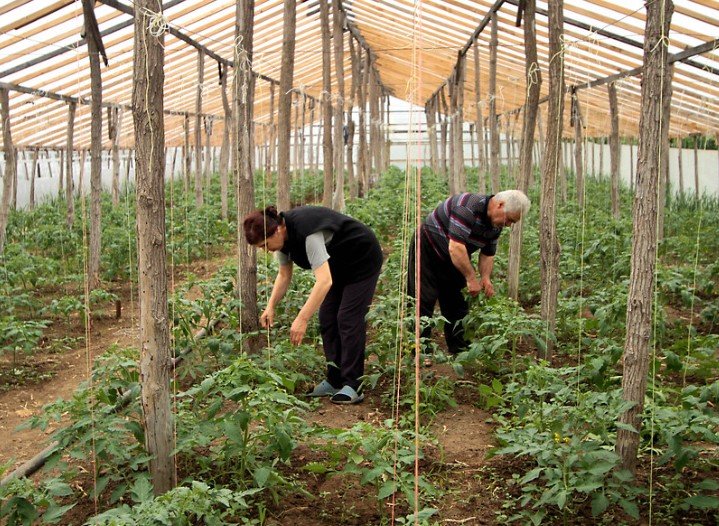Georgia’s efforts to boost sustainable agriculture took a significant step forward with a recent meeting between key officials from the country and the World Bank. The discussions centered on collaborative efforts to improve irrigation systems, promote climate-conscious farming, and enhance the overall sustainability of agriculture in the region.
The meeting, held on January 28, 2025, between Davit Songulashvili, Georgia’s Minister of Environmental Protection and Agriculture, and Dr. Holger Kray, the World Bank’s Agriculture and Food Practice Manager for Europe and Central Asia, marked a milestone in strengthening bilateral cooperation on critical agricultural initiatives.
Focusing on Climate-Conscious Agriculture
At the heart of the discussions was the shared commitment to climate-conscious agriculture. Songulashvili emphasized the importance of modern technologies in tackling the challenges posed by climate change. Both sides recognized that improving farmers’ access to these technologies was a crucial factor in achieving sustainable agricultural practices.

“Several key initiatives are being implemented in Georgia with the support of the World Bank, contributing to sustainable agricultural development,” said Songulashvili. He further emphasized the critical role of the World Bank’s partnership in providing advanced technologies to Georgian farmers, helping them adopt climate-resilient methods that improve productivity while reducing environmental impact.
In response, Dr. Kray expressed his gratitude for Georgia’s continued collaboration with the World Bank, noting that the alignment of environmental protection and agricultural development under a single ministry in Georgia would significantly enhance the efficiency of implementing climate-smart agriculture initiatives.
The GRAIL Project: A Key Focus of Collaboration
One of the most significant projects discussed during the meeting was the Georgia Resilient Agriculture, Irrigation, and Land (GRAIL) project. With a total financial backing of USD 150 million from the World Bank, the GRAIL project aims to revolutionize Georgia’s irrigation systems, improve agricultural productivity, and strengthen the country’s institutional capacity for land management.
The initiative is designed to modernize the country’s irrigation infrastructure, making it more efficient and sustainable, which in turn will boost agricultural output. As Georgia increasingly faces the challenges of climate change, improving water management and ensuring the sustainable use of land are crucial components of the country’s long-term agricultural strategy.
The GRAIL project’s goals go beyond just technical improvements. It also focuses on building local expertise and institutional frameworks that can support sustainable agriculture practices in the future. The World Bank’s involvement ensures that global best practices are applied to Georgia’s agricultural sector, helping the country meet international environmental standards while achieving economic growth.
The Path Forward: Expanding Cooperation
Looking ahead, both parties expressed a strong desire to further deepen their collaboration. With climate change threatening agricultural productivity worldwide, Georgia’s proactive approach to sustainable farming, backed by the World Bank’s expertise, places the country at the forefront of environmentally conscious agriculture in the region.
As the World Bank continues to provide support for Georgia’s agriculture sector, Songulashvili and Dr. Kray are optimistic about the future. The meeting highlighted the potential for further cooperation in areas like land conservation, water management, and modern agricultural techniques, all of which will contribute to a more resilient and sustainable agricultural system in Georgia.
